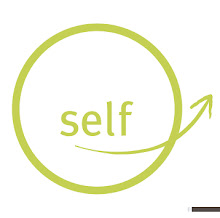I found this article on the
socialedge blog today. We would like to tell the story of Social Pioneers in Germany. This article includes some questions to tell your story. If you would like to share your story on this blog, please email f.godat(at)self-germany.de
Strategic storytelling and social innovation
by Social Edge — last modified 2007-09-25 11:47
Hosted by Michael J. Margolis (September 2007)
Strategic StorytellingThrough THIRSTY-FISH, the consulting firm he launched, Michael Margolis helps business and social innovators find the essence of their story and make it real to those constituencies that matter most. He enables organizations to shift perceptions, raise money, and reframe conversations.
What do stories have to do with social enterprise?
At its core, social entrepreneurship is about introducing a new story of social innovation – and convincing others to believe in your market-based solution. Too often, the status quo stands in the way of behavior change and idea adoption.
Most social entrepreneurs must ask others to reframe some of the basic assumptions that we all take for granted. That’s why reason alone cannot overcome the intractable forces of culture. You need a story that inspires and emotionally connects to what people care about.
A well-crafted story becomes the platform that allows people to See, Feel, and Believe in what you are doing. By starting with the right story frame, you accelerate the pace at which people will be able to locate themselves and feel drawn into your story.
See
Your story should call people to a higher truth. Help people see something we tend to ignore or overlook. Illustrate a new path where everybody wins. Frame your message around universal needs and aspirations. What do we all deserve or want? Rather than pontificate on the moral value of this truth, develop a point of view that is refreshing, unique, or even provocative. Get people to think from a new perspective.
Feel
Great stories are driven by sincere emotion. This kinetic energy is what engages people, and gets your audience to invest in the outcome of your story. We make choices based on feelings, not reason. Your story must establish an emotive connection, compelling someone into caring and wanting to be a part of what you do.
Believe
Every story is ultimately at the mercy of its audience. They hold the power to judge and perceive your story however they wish. Get clear on the audience you are trying to persuade and take the time to understand their motivations. How will they identify with your story, and why should they believe in your ability to deliver on your promise?
Let's explore key questions as they relate to social entrepreneurs:
• What is the truth at the heart of your story?
• Why would someone feel connected to your story?
• Who do you need to believe in your story?

